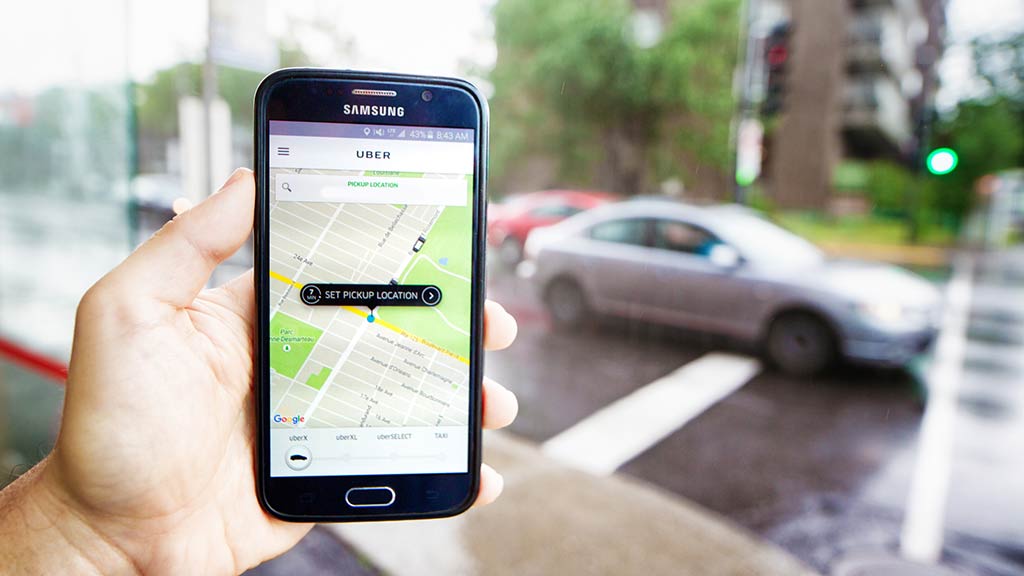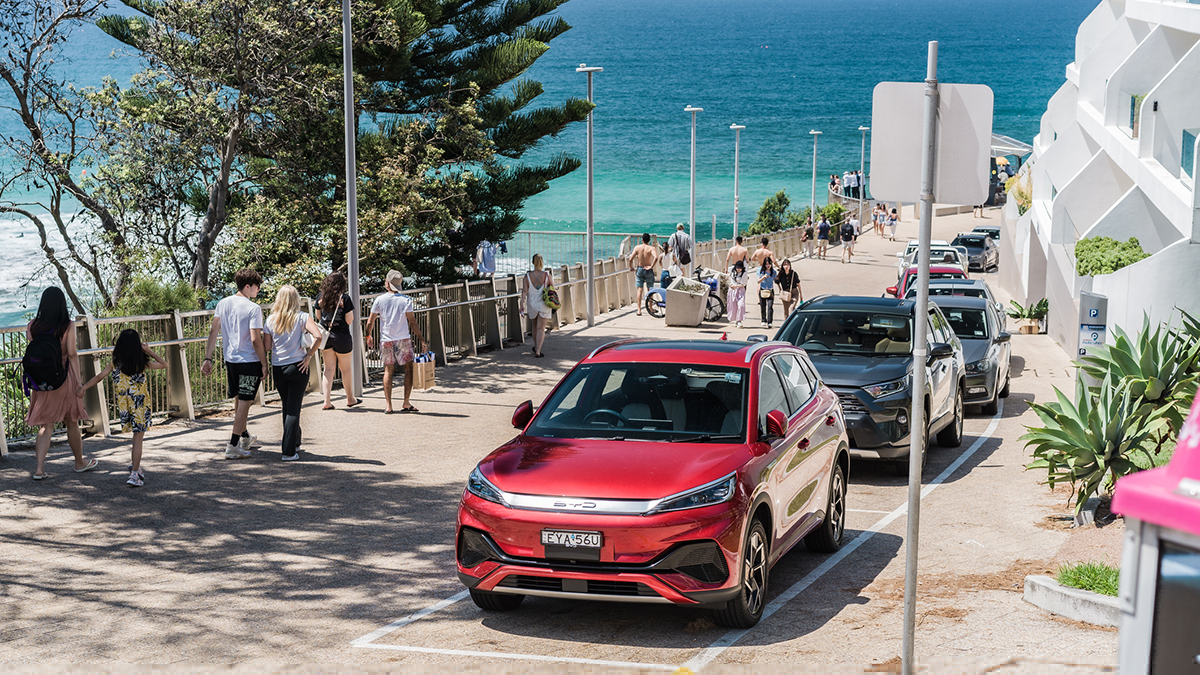Get our independent lab tests, expert reviews and honest advice.
A guide to rideshare and taxi apps: Uber, Ola, Ingogo and more

Though Uber may be synonymous with ridesharing, there are a number of competitors operating in Australia. Taxi companies have also released similar apps, to match the convenience that ridesharing services claim to provide.
On this page:
- What are ridesharing services?
- Pick your ride
- Are ridesharing services legal?
- Are ridesharing services cheaper than taxis?
- Are ridesharing services safe?
We look at some of the pros, cons and special features of rideshare and taxi ordering apps and consider whether they’re better or cheaper than calling for a taxi.
What are ridesharing services?
Ridesharing services follow the same basic principle as taxis – you book a ride, the driver takes you to your destination and you pay them. The delivery and organisation however, are a little different.
- Rideshare drivers use their own vehicles, rather than one owned by a taxi company.
- Anyone can sign up to be a rideshare driver, as long as they pass the safety and licensing assessments.
- You book your ride using a smartphone app, which connects you to available drivers in the area, and gives you the approximate travel time and price.
- When a driver accepts your booking, you can track their vehicle and ETA using GPS.
- The app provides you with driver and vehicle information such as name, license plate details, car colour and so on, so you can identify them on arrival.
- At the end of the trip, the app automatically bills your account, and you rate your driver. You can arrange an alternative payment method, such as cash, in some cases.
No phone? Better call a taxi
While rideshare booking methods are convenient, everything relies on the app. If your battery dies or you lose your phone, then you can’t book a ride. Rideshares don’t have hotlines you can call, and you can’t hail one off the street. This is where cabs still have an advantage.
Pick your ride
Many ridesharing and taxi apps offer a range of vehicle options.
- Every service lets you book a standard vehicle (or standard taxi). This is the cheapest option
- Some can send a large vehicle, people-mover or maxi-taxi for big groups or items
- Uber and Rydo can provide accessible vehicles, which are licensed to transport passengers in wheelchairs
- Shebah has a child seat option
- Uber has a range of luxury vehicles to choose from, including sedans and SUVs
Some taxi companies have partnered with rideshare services too, which gives you the option to choose a cab or private vehicle.
Are ridesharing services legal?
When Uber first launched in Australia, it wasn’t subject to the same regulations and fees as the taxi industry, which eventually led to legislative change at state and territory levels.
- Ridesharing is legal in all states and territories as of 2019.
- Though legislative change kicked off as a result of Uber, the laws apply to all ridesharing services.
- Regulations and requirements such as vehicle quality control, background checks and licensing fees differ from state to state.
Are ridesharing services cheaper than taxis?
- Standard vehicle ridesharing (i.e. not luxury or specialty vehicles) is cheaper than a taxi most of the time, although prices seem to be on the rise.
- Unfortunately, operation cost increases may be passed onto the passenger. Taxis and rideshares in the Northern Territory, for example, incur an additional $1 fee to offset unique licensing fees.
- Ridesharing services often offer discount codes, referral bonuses if someone signs up off your recommendation, and discounts for new users.
Sometimes a taxi is the cheaper option
- Ridesharing services introduce surge pricing during busy periods when drivers are in high demand. This is multiplication-based, as opposed to a single fee, which can dramatically increase the cost of a ride.
- Surge pricing is at the discretion of the ridesharing service. There is little consistency as to how and when it is applied.
- Taxis do not do this, though they may apply surcharges depending on the pickup location (e.g. the airport) and time of day. A taxi could still be a cheaper option depending on the duration of your ride.
Uber Pool – carpool to save cash
We’ve all split a ride with friends to save some cash, but Uber has taken this idea one step further. Uber Pool lets you share a ride with strangers heading in the same general direction, to bring down the overall cost.
Pool adds other riders as they book, so you don’t need to coordinate locations and times with people you don’t know. The tradeoff, aside from travelling with a stranger, is that the driver may need to make multiple stops, which can increase travel time.
Note: Uber Pool is only available in some locations, which you can find on the company website.
Cancellation costs
Most ridesharing services and taxi apps charge a cancellation fee, though the parameters are pretty vague:
- Most “may” charge your card if you cancel after a driver has accepted your booking.
- They don’t specify a time limit, but you generally have a few minutes in our experience.
- Ola and Shebah provide a five-minute cancellation window, after the booking.
- Rydo may charge up to 50% of the predicted fare, or a maximum of $10, if you cancel the ride or are not waiting at the nominated pickup point.
Unfortunately this doesn’t extend the other way. Drivers can cancel your ride, regardless of how long you’ve been waiting. But some apps let you provide feedback in this instance, giving you the opportunity to justifiably complain.
Are ridesharing services safe?
Ridesharing critics often point to supposedly lax safety regulations, claiming that they’re less safe than taxis, but this isn’t entirely true.
Background checks
Taxi and rideshare drivers must all undergo background checks, and vehicle safety needs to be assessed.
Background checks vary from state to state (and territory). In New South Wales for example, rideshare drivers must provide:
- A valid licence and passport/birth certificate
- Proof of vehicle insurance
- A driving record (which will be used for a police background check)
- An application for a passenger transport licence code (PTLC). Taxis and private car companies also require a PTLC.
- Ridesharing services outline their state and territory requirements online; Uber, Ola, Shebah, GoCatch, Bolt. Rydo and Ingogo fall under similar taxi legislation.
Security cameras
Taxis are required to be fitted with security cameras, rideshare vehicles aren’t.
Cameras in cabs are a useful safety feature. Not only does this provide evidence in the event of an incident, it can act as a deterrent against bad behaviour. We’re unlikely to see these sort of requirements implemented in private vehicles any time soon.
Safety features in the app
Most rideshare companies have added safety features in their apps that you can activate during a ride. They often range from simple security, to quick access to emergency services.
- You can track your journey and alert contacts if you feel unsafe.
- Some apps, such as Uber, let you prepare a list of trusted contacts. These can be easily access if you need to reach a friend or family member, but don’t feel the need to call emergency services.
- You can set up some apps to automatically share your trip with your contacts, in real time.
- Most apps provide a clear SOS or emergency section that can put you through to the police or similar services with one or two taps. They can locate the vehicle via your smartphone’s GPS.
A well-designed app will have all of these features, and more, in an obvious, easy-to-access location:
- Vehicle tracking
- Emergency contacts (triple zero, police, customer representatives)
- User-generated emergency contacts (a list of close friends and family members)
Note: Vehicle tracking is a particularly important safety tool. Some apps let you share your rides with selected contacts in real time so your family, for example, can track your journey. If an emergency occurs, they can quickly track you down and inform police. Similarly, emergency services can easily find you using real time tracking.
Rate and review
Most apps have a rating and comments system that lets you provide feedback on the driver at the end of your journey. Drivers can also rate passengers. This helps ridesharing companies identify poor drivers and passengers, which can lead to a ban if their average rating drops below a certain point (though this is generally unspecified).
This system can theoretically improve the quality of your ride.
- Almost all services use a five-star rating system, which averages out over time. Ingogo uses thumbs up and down, which lacks nuance.
- Some let you leave additional comments which are positive or negative depending on your star rating.
- Rideshare drivers depend on positive customer feedback to stay employed, which encourages them to keep their car clean, engage in positive conversation, and take extra steps to ensure a pleasant journey. Some even go as far as providing free water and snacks for the passengers, while others let you connect to the car stereo so you can listen to your music.
Complaints and concerns
Though you may not find yourself in an emergency, some drivers can leave you feeling unsafe or uncomfortable at the end of a trip. This is where ratings, feedback and complaint systems can come into play.
- If you have had an uncomfortable ride, give the driver a low rating and explain why. Drivers must maintain positive feedback, and consistently poor performance will likely result in termination.
- You can also register an official complaint. Unfortunately there is no guarantee as to whether drivers will face consequences, but most companies claim to be particularly vigilant in this area, in order to boost consumer confidence in their service.
- If you have a financial dispute, you will need to contact the rideshare company directly. Most services this process slightly easier by giving you access to your trip history. This should assist in any cost-related claims, and can be useful in the event of a legal investigation.
Shebah – by women, for women
Shebah is an Australian-owned ridesharing service that takes a unique approach to safety. The company only hires female drivers, and only accepts female passengers, or people who identify as female. Male relatives and children are also allowed to travel with a female passenger.
It was created to provide a safe alternative for women, following increased reports of negative ridesharing experiences that ranged from unsafe environments all the way up to assaults and similar crimes. Though we didn’t test this service at length, anecdotal evidence from CHOICE staff who regularly use Shebah highlights other important features including:
- Drivers moving to your side of the street to pick up you or drop you off (rather than forcing you to cross the road).
- Drivers contacting the passenger to organise a safe pickup point if it’s late, in a busy area or the pickup is complicated. Shebah doesn’t put the onus on the passenger. This could be waiting in a bar, rather than on the street, at which point the driver will call to say they’ve arrived. This ensures that the passenger can wait in an environment that they feel is safe.
- Drivers must have a current working with children check. This allows Shebah to transport unsupervised children if required.
However, Shebah’s in-app safety features are very limited. This is understandable, as Shebah is built entirely around creating a safe riding environment for women, but that doesn’t mean emergencies won’t occur.
For this reason Shebah did not score well for safety in our review.
While their driver rules and regulations will more than likely improve safety for women, and people who identify as women, we don’t feel that this is enough to justify the sparse in-app safety features.
Are ridesharing services ethical?
Rideshare drivers are essentially independent contractors driving private vehicles, which puts these companies in something of an ethical grey area. The system allegedly limits the rights of drivers if they have any professional and financial grievances, and doesn’t put them in the best position to negotiate.
This was reinforced in 2017, when the Fair Work Commission (FWC) concluded that Uber drivers are independent contractors, not company employees and thus did not fall under the same protections. The decision emerged during a tribunal, when a driver applied for unfair dismissal remedy when his driving account was terminated in August 2017. FWC concluded that the driver was not an employee and therefor was not protected from unfair dismissal
A recent investigation by Four Corners found that Uber had engaged in anti-competitive practices and skirted regulators when it entered the Australian market. However, Uber claims that this is no longer the case.
This doesn’t imply that other ridesharing services are completely clean – Uber is often under the spotlight because it’s by far the biggest company – it’s worth considering these ethical implications nonetheless.





